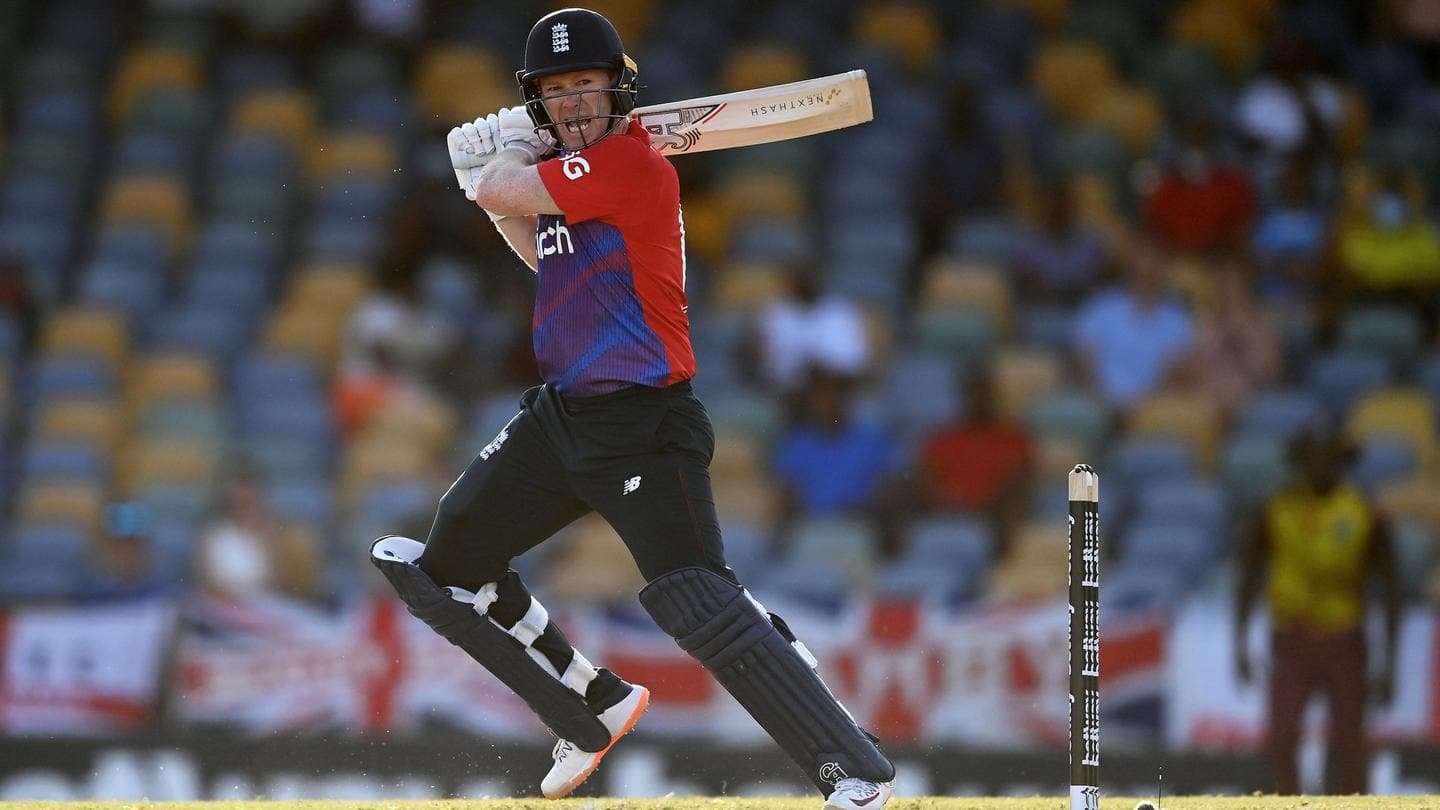Eoin Morgan set to retire from international cricket: Here's why
What's the story
Eoin Morgan, the captain of England's limited-overs squads, is contemplating retirement from international cricket.
A recent report in The Guardian suggested that the 35-year-old could announce his retirement by the end of this week.
In 2019, Morgan led England to their only 50-over World Cup title.
However, he has been under the scanner due to his poor batting form.
Here are further details.
Run
Morgan recorded two ducks in Netherlands ODI series
Although England won the ODI series in Netherlands under Morgan's leadership, the skipper failed to perform with the bat.
He recorded two back-to-back ducks before missing the third ODI with a groin issue.
"If I don't think I am good enough or I don't feel I am contributing to the team, then I will finish," Morgan had told Sky Sports earlier this month.
Information
A dip in Morgan's form
After the completion of the 2019 World Cup, Morgan endured a rough patch. He has slammed just 1,001 runs from 49 internationals at an average of 29.44. The tally includes five half-centuries and a solitary ton.
Average
Morgan's average has fallen since 2019
Morgan averaged 48.00 in 2019 (following the 2019 WC). He scored 192 runs at a strike rate of 193.93.
His average fell to 35.06 in 2020. He slammed 526 runs from 20 internationals in that season.
Morgan averaged 23.00 from as many matches in 2021. He struck at just 99.21 across formats.
The England captain averages less than 10 in four games this year.
IPL
Morgan averaged just 11.08 in IPL 2021
Morgan, who led Kolkata Knight Riders to the final of the 2021 Indian Premier League (IPL) season, went unsold in the 2022 mega auction.
He scored just 133 runs from 17 matches at an average of 11.08.
Morgan had a strike rate of 95.68 in that season.
The left-handed batter recorded as many as four ducks in his campaign.
Approach
Morgan transformed England's white-ball sides
Morgan had replaced Alastair Cook as England's ODI captain ahead of the 2015 World Cup.
Although England failed miserably, Morgan changed the shape of England's white-ball sides.
He instilled the counter-attacking instinct in the ODI side that paid dividends.
Four years later, England won their first-ever World Cup, defeating New Zealand in a historic final at Lord's.
